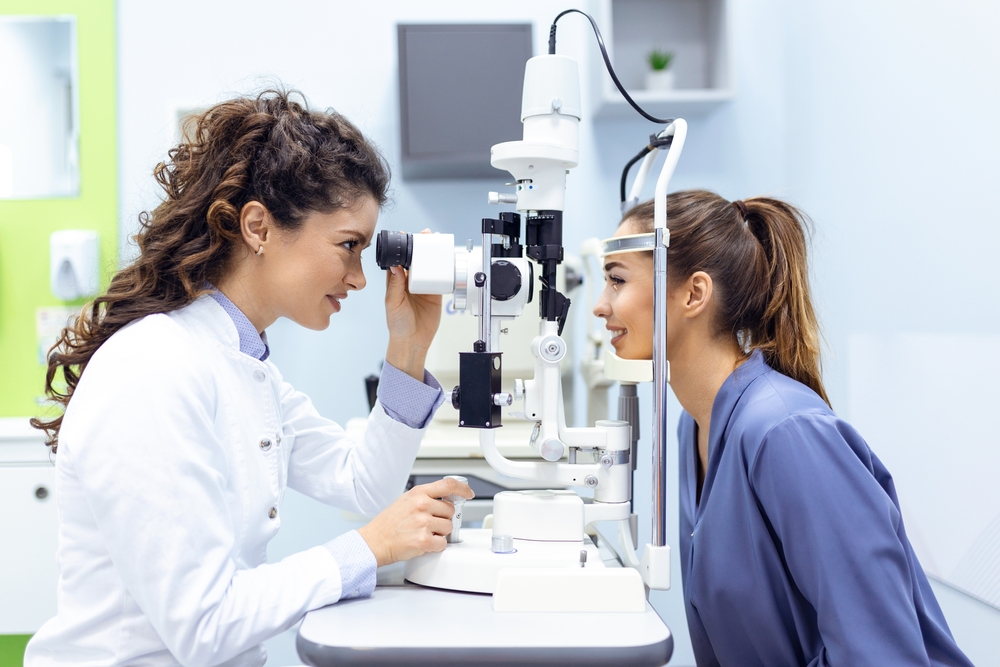All Categories
Featured

While many individuals recognize the value of protecting their skin from the sunlight, the harmful effects of ultraviolet (UV) rays on eye health commonly go neglected. Whether you're soaking up the sun on a summer day or walking outdoors on a cloudy mid-day, protecting your eyes from UV rays is important.
What Are UV Rays? UV rays are a sort of electro-magnetic radiation sent out by the sun. They are classified right into three types:
UVA Rays: These pass through deep right into the skin and eyes and can add to lasting damage. UVB Rays: These rays are a lot more intense than UVA and are largely responsible for surface-level damage to the eyes and skin. UVC Rays: These are the most dangerous but are mostly absorbed by the Earth's ozone layer and don't usually reach us. UVA and UVB rays are the primary perpetrators behind eye-related damages.
Short-Term Effects of UV Direct Exposure on the Eyes. Even short-term exposure to intense UV rays can harm your eyes. One typical condition caused by this is photokeratitis, or "sunburn of the eye." Signs of photokeratitis consist of:
Painful, red eyes. Sensitivity to light. Tearing or too much watering. Momentary vision loss or blurry vision. Photokeratitis is generally momentary, however it serves as a warning of exactly how harmful UV exposure can be, also in little dosages.
Long-Term Impacts of UV Direct Exposure. Prolonged direct exposure to UV radiation can bring about a lot more severe and permanent eye conditions, such as:
Cataracts: UV rays can accelerate the development of cataracts, a problem that creates clouding of the eye's natural lens, bring about blurred vision and, if unattended, blindness.

Macular Degeneration: UV direct exposure can damage the retina, particularly the macula, raising the threat of age-related macular deterioration (AMD), which influences central vision.
Pterygium: A development of cells on the white component of the eye that can extend over the cornea, causing pain, soreness, and vision problems.
Pinguecula: UV exposure can create yellowish down payments to form on the conjunctiva, causing inflammation and dryness.
Skin Cancer Cells Around the Eyes: The delicate skin bordering your eyes is very vulnerable to UV radiation, enhancing the danger of skin cancers like basic cell cancer and squamous cell carcinoma.
Exactly How to Secure Your Eyes from UV Rays. Safeguarding your eyes from UV rays is simple and needs a couple of conscious behaviors:
Invest in Quality Sun glasses: Select sunglasses that block 100% of UVA and UVB rays. Look for labels that specify "UV 400" defense. Wrap-around styles are perfect as they obstruct UV rays from the sides too.
Put On a Wide-Brimmed Hat: A hat with a brim a minimum of three inches wide can significantly decrease UV direct exposure to your eyes and face.
Limit Direct Exposure During Height Hours: UV rays are best between 10 a.m. and 4 p.m. If you should be outdoors throughout these hours, ensure you're effectively shielded.
Don't Be Fooled by Clouds: UV rays can permeate with clouds, so it is essential to put on sunglasses even on cloudy days.
Secure Your Eyes Year-Round: Snow, sand, and water can mirror UV rays, intensifying their results. Eye security isn't just for bright summertime days-- guarantee you're covered in all seasons.
Use UV-Blocking Call Lenses: Numerous contact lenses currently feature UV protection. If you use get in touches with, ask your ophthalmologist about lenses with integrated UV filters for added defense.
Motivate Eye Defense for Kid: Kid's eyes are a lot more sensitive to UV rays because their lenses are more clear, allowing even more radiation to reach the retina. Make certain they wear sunglasses and hats throughout exterior tasks.
Regular Eye Tests. Normal check-ups with an eye treatment professional are essential for early discovery of any kind of UV-related damage. An eye doctor or eye doctor can examine your eyes, suggest safety steps, and spot problems like cataracts or macular degeneration early.
Verdict. By using UV-blocking sunglasses, restricting sunlight direct exposure during top hours, and remaining consistent with eye examinations, you can ensure your eyes stay healthy and balanced and your vision continues to be clear for years to come. Shielding your eyes from UV radiation isn't just concerning comfort-- it's a crucial step in protecting your lasting eye wellness.
Latest Posts
Take Advantage of Limited-Time Auto Repair Deals in Chicago at Montclare Auto Repair
Improve Your Home's Outside with Weathercraft's Siding Solutions
Unlock Your Financial Partner at WyHy – Key Advantages for Your Financial Success
More
Latest Posts
Take Advantage of Limited-Time Auto Repair Deals in Chicago at Montclare Auto Repair
Improve Your Home's Outside with Weathercraft's Siding Solutions
Unlock Your Financial Partner at WyHy – Key Advantages for Your Financial Success